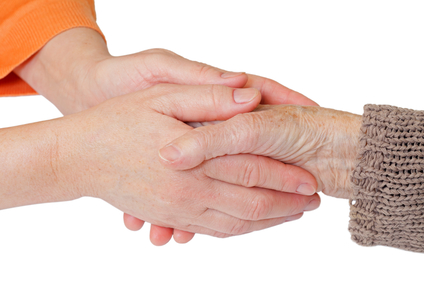From Couch to Coach: The Benefits of Health Coaching for Improving Physical Activity in Parkinson’s Disease Patients
The benefits of health coaching for managing chronic diseases has been growing in popularity for the past decade and contrary to popular belief, a health coach is not someone who is just providing guidance on weight loss. The concept of activation is a crucial component to managing healthy behaviors and for those diagnosed with Parkinson’s Disease (PD) or other neurological conditions, the ability to adhere to exercise programs can be a challenge.
According to Terry Ellis, assistant professor at Sargent College and Director of the Center for Neurorehabilitation, a virtual coach was effective in helping individuals diagnosed with PD adhere to a daily walking regimen. After one month of coaching, Ellis’ study demonstrated a 100 percent retention rate among participants due to the ability of the coach to build social and emotional relationships.
 For those living with neurological conditions, both the availability and accessibility to exercise programs for this population can be a limiting factor. For those with advanced symptoms, driving themselves to an exercise class is not possible and can place an added strain on their caregiver to coordinate such processes. A health coach can be just what is needed to link the patient to the outside world by which they feel connected socially and emotionally. This can provide enough motivation for them to engage in the necessary level of exercise the can significantly reduce symptoms related to PD or other neurological conditions.
For those living with neurological conditions, both the availability and accessibility to exercise programs for this population can be a limiting factor. For those with advanced symptoms, driving themselves to an exercise class is not possible and can place an added strain on their caregiver to coordinate such processes. A health coach can be just what is needed to link the patient to the outside world by which they feel connected socially and emotionally. This can provide enough motivation for them to engage in the necessary level of exercise the can significantly reduce symptoms related to PD or other neurological conditions.
Health coaching for this population should focus primarily on:
- Managing the severity and variability of symptoms through a day, week or month and counsel the patient on how to stay on track with healthy behaviors
- Ensuring adequate social and emotional support and possibly connecting them to community resources such as respite programs, support groups, or educational classes
- Connecting them to experts that can help them remain physically active while avoiding injury or falls
- Support the needs of the caregiver through the progression of the disease and guide additional services that may be required should symptoms worsen
- Health coaches are not expected to be experts in the disease itself, but rather an outlet for the patient to express their needs and ensure the highest quality of life possible.
Resources
Ellis, T. (2013). Feasibility of a virtual exercise coach to promote walking in community dwelling persons with Parkinson Disease. American Journal of Physical Medicine and Rehabilitation. Vol. 92, Issue 6, pp. 472-485. Doi: 10.1097/PHM.0b013e31828cd466.

